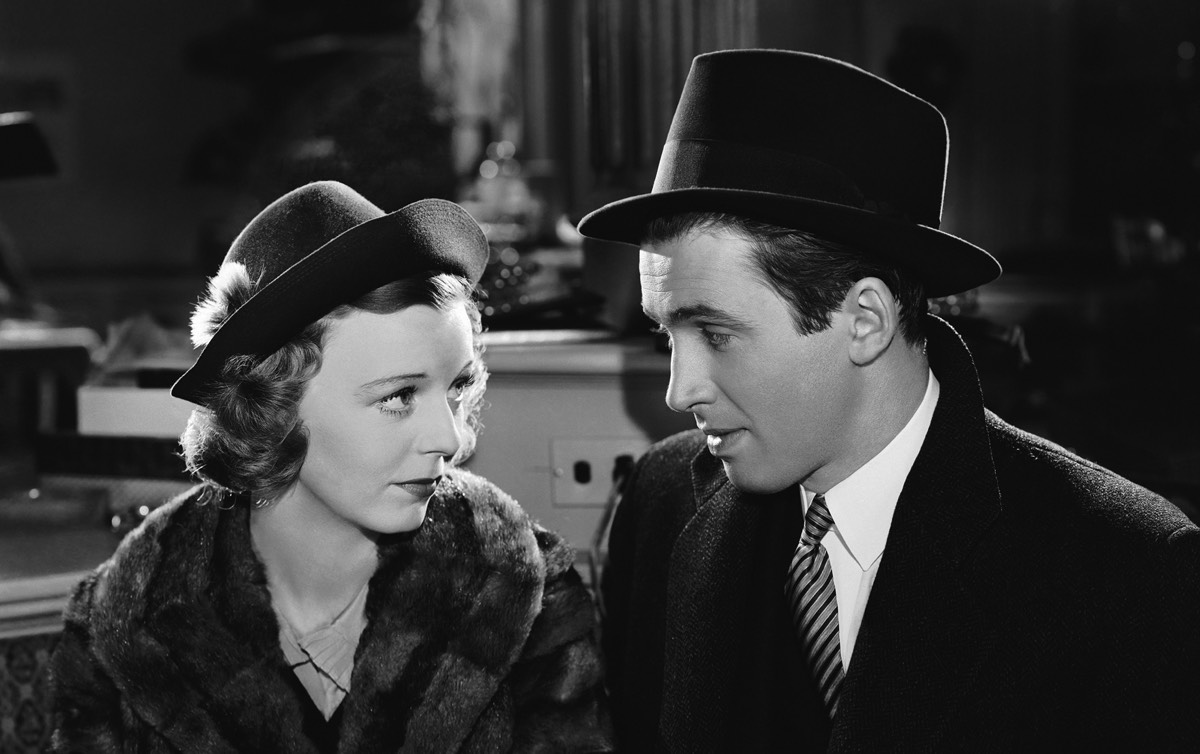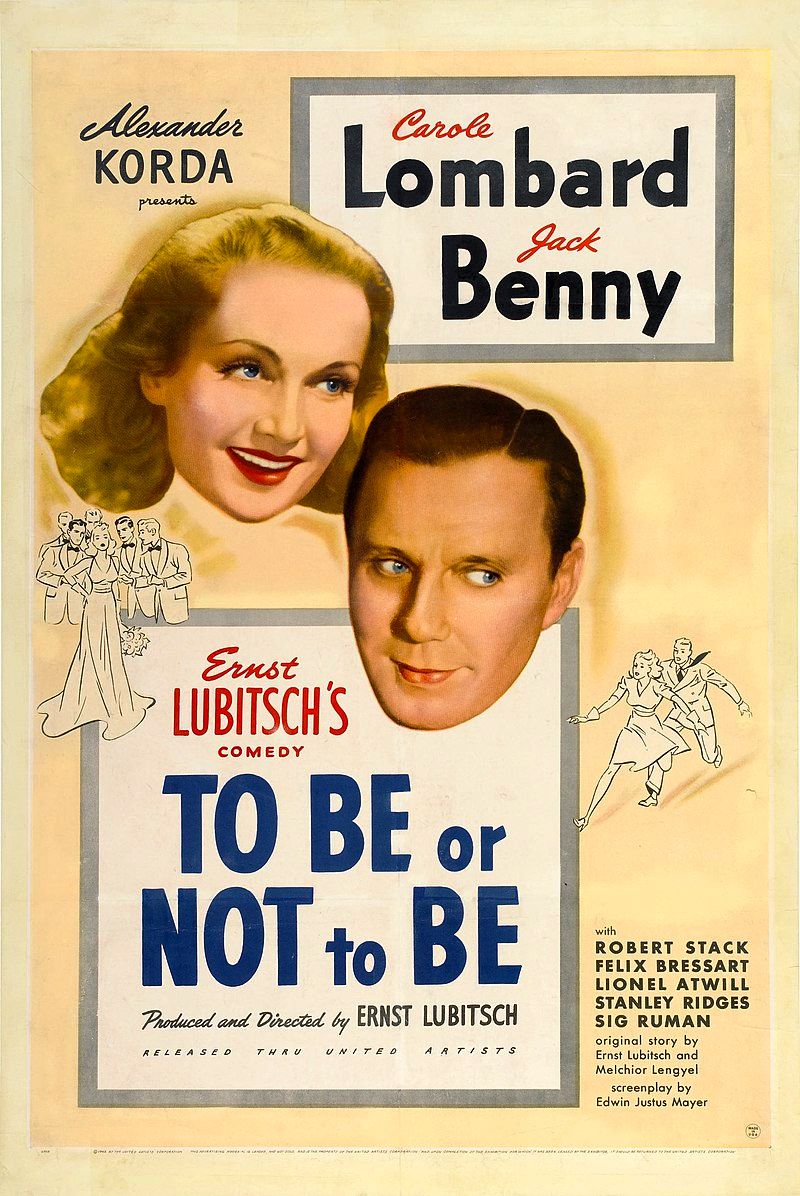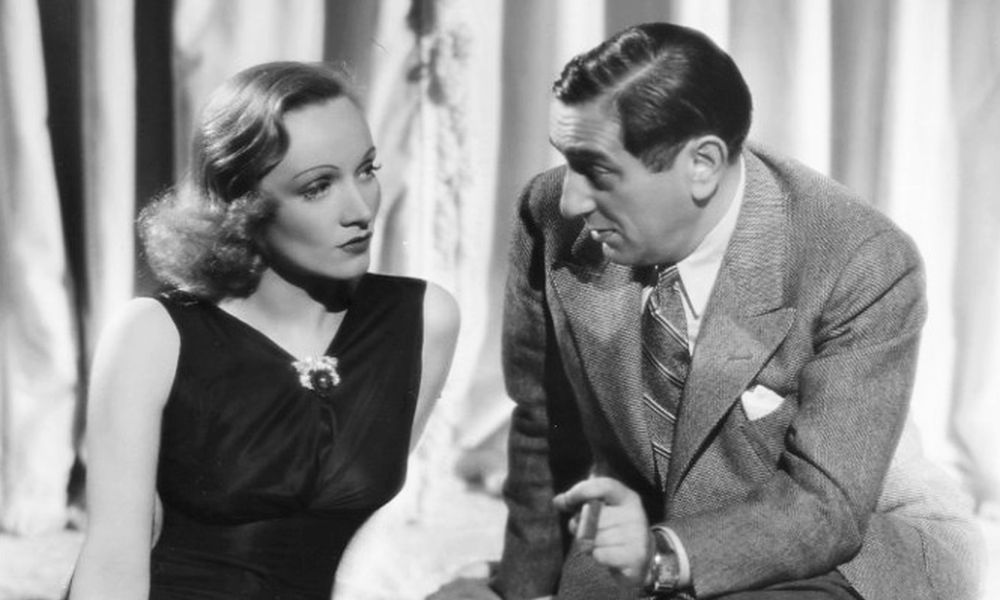"Revered in his lifetime as an artist on a par with Chaplin and René Clair, Ernst Lubitsch was successful from first to last, and probably had more influence over American movie comedy of the Hollywood Golden Age than anyone." - Tom Charity (The Rough Guide to Film, 2007)
Ernst Lubitsch
Director / Producer / Screenwriter / Editor
(1892-1947) Born January 29, Berlin, Germany
Top 250 Directors
(1892-1947) Born January 29, Berlin, Germany
Top 250 Directors
Key Production Countries: USA, Germany
Key Genres: Comedy, Sophisticated Comedy, Romance, Drama, Romantic Comedy, Period Film, Melodrama, Comedy Drama, Historical Film, Musical, Romantic Drama, Farce
Key Collaborators: Hanns Kräly (Screenwriter), Hans Dreier (Production Designer), Theodor Sparkuhl (Cinematographer), Samson Raphaelson (Screenwriter), Kurt Richter (Production Designer), Pola Negri (Leading Actress), Emil Jannings (Leading Actor), Victor Milner (Cinematographer), Harry Liedtke (Leading Character Actor), Ernest Vajda (Screenwriter), Edward Everett Horton (Leading Character Actor), Werner R. Heymann (Composer)
Key Genres: Comedy, Sophisticated Comedy, Romance, Drama, Romantic Comedy, Period Film, Melodrama, Comedy Drama, Historical Film, Musical, Romantic Drama, Farce
Key Collaborators: Hanns Kräly (Screenwriter), Hans Dreier (Production Designer), Theodor Sparkuhl (Cinematographer), Samson Raphaelson (Screenwriter), Kurt Richter (Production Designer), Pola Negri (Leading Actress), Emil Jannings (Leading Actor), Victor Milner (Cinematographer), Harry Liedtke (Leading Character Actor), Ernest Vajda (Screenwriter), Edward Everett Horton (Leading Character Actor), Werner R. Heymann (Composer)
"Ernst Lubitsch was the director most closely identified with the genre of romantic comedy during the Studio era. He was known for the "Lubitsch touch," the ineffable combination of gloss, sophistication, wit, irony, and, above all, lightness, that he brought to his material... If Lubitsch’s reputation has not held up as well as some of his studio-era contemporaries, it may be because his stylish comedies fail to deal with serious issues, even serious issues of love or romance. But one film at least cannot be dismissed in this way. To Be or Not to Be (1942) is a romantic comedy set in Nazi-occupied Warsaw. Although the making of a comedy set in war-torn Europe troubled many at the time, the film may be Lubitsch’s most enduring work." - David R. Shumway (Schirmer Encyclopedia of Film, 2007)
"As Hollywood recedes, Lubitsch's role as a creative entrepreneur and as the germ of European sophistication becomes more fascinating. Considering the way he was rebuffed by Mary Pickford on his first American film, Rosita, and so wittily mocked for his Teutonic stubbornness, it is remarkable that he achieved such eminence in Hollywood and that his reputation rested on the supposed delicacy of "touch." - David Thomson (The New Biographical Dictionary of Film, 2002)

The Shop Around the Corner (1940)
"After joining Warner Brothers, he directed five films that firmly established his thematic interests. The films were small in scale, dealt openly with sexual and psychological relationships in and out of marriage, refrained from offering conventional moral judgments, and demystified women. As Molly Haskell and Marjorie Rosen point out, Lubitsch created complex female characters who were aggressive, unsentimental, and able to express their sexual desires without suffering the usual pains of banishment or death." - Greg S. Faller (The St. James Film Directors Encyclopedia, 1998)
"Ernst Lubitsch is one of the defining figures of the cinema of the first half of the 20th century. Starting as an actor in Max Reinhardt’s Deutsches Theatre, he quickly became a key director of German cinema, moving dexterously between comedies of manners, exotic fantasias and epic historical romances and adventures. Renowned as a director of elegant and sophisticated sexual comedies, his wonderfully balanced and playful work is a marvel of intricate production design and expressive mise en scène. Leaving for the United States in 1923, Lubitsch quickly established himself as a brilliant director of bittersweet, almost continental comic romances and Ruritanian fantasies of a vanishing Europe." - Melbourne Cinémathèque
"Lubitsch was always the least Germanic of German directors, as Lang was the most Germanic. The critics were always so obsessed with what Lubitsch naughtily left off the screen that they never fully evaluated what was left on... Lubitsch was the last of the genuine continentals let loose on the American continent, and we shall never see his like again because the world he celebrated had died - even before he did - everywhere except in his own memory." - Andrew Sarris (The American Cinema, 1968)
"Of all those to make the transition from silent to talking pictures, none did it with more elegance and erudition than Ernst Lubitsch… Arriving in Hollywood from Berlin in 1922 having helped revitalise German cinema after the Great War, Lubitsch became a studio insider who refused to abide by the rules. On presenting him with an honorary Academy Award in 1947, fellow director Mervyn LeRoy commended this “master of innuendo” on his “adult mind and a hatred of saying things the obvious way”." - David Parkinson (BFI, 2018)
"Ernst Lubitsch brought continental manners and hedonism into puritan America. He established his own style of elegance, wit, incisiveness, and cynicism, perfectly suited to the varied themes he worked on, which came to be called the "Lubitsch Touch." - Ronald Bergan (Film - Eyewitness Companions, 2006)
"Once deemed “the Griffith of Europe,” Lubitsch’s greatest achievements were in fact in the American cinema, where he effectively raised the bar for screen comedy, laid confident steps into the tenuous terrain of the “talkie,” and forged the movie musical from a toolshed of cumbersome equipment and unproven actor-singers. Having worked for each of the major Hollywood studios at various points in his career until his death in 1947, Lubitsch was a figure of supreme industry cachet and high mainstream visibility who nonetheless cultivated what a publicist famously referred to as “The Lubitsch Touch”—that is, a markedly singular brand in a mass-produced medium. In essence, the catchphrase forecasted the later emergence of auteurism as a foundational critical theory used to elevate otherwise unsung studio directors. That it was penned initially for marketing purposes speaks to Lubitsch’s peculiar case as a mainstream artist whose eccentricity was the very substance of his populism." - Carson Lund (Harvard Film Archive, 2017)
"The man with the cynical, delightful touch created an aristocratic world of yesteryear, then poked fun at it. Lubitsch could say volumes by implication and innuendo." - William R. Meyer (The Film Buff's Catalog, 1978)
"I sometimes make pictures which are not up to my standard, but then it can only be said of a mediocrity that all his work is up to his standard." - Ernst Lubitsch
"I let the audience use their imaginations. Can I help it if they misconstrue my suggestions?" - Ernst Lubitsch
Selected Filmography
{{row.titlelong}}
Ernst Lubitsch / Fan Club
Andrew Sarris, Adrian Martin, Dan Sallitt, Freddy Buache, Farran Smith Nehme, Peter Bogdanovich, Kenneth Turan, Gilles Jacob, Molly Haskell, Miguel Marías, Arnaud Desplechin, Todd McCarthy.
Andrew Sarris, Adrian Martin, Dan Sallitt, Freddy Buache, Farran Smith Nehme, Peter Bogdanovich, Kenneth Turan, Gilles Jacob, Molly Haskell, Miguel Marías, Arnaud Desplechin, Todd McCarthy.
"Fan Club"
These film critics/filmmakers have, on multiple occasions, selected this director’s work within film ballots/lists that they have submitted.
These film critics/filmmakers have, on multiple occasions, selected this director’s work within film ballots/lists that they have submitted.


